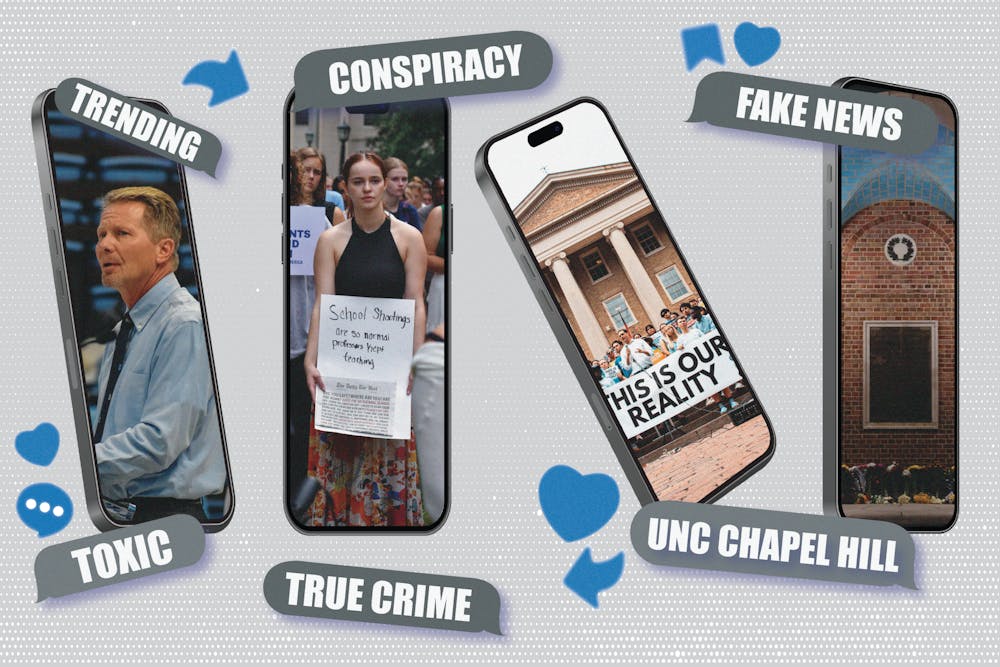At 1:03 p.m. on Monday, Aug. 28, I received the first text from Alert Carolina telling me to “go inside now” and “avoid windows.” I ran to the Daily Tar Heel newsroom from my parked car on Rosemary Street, and spent the following seven hours listening to police scanners, watching news channels and reading posts of other UNC students who too spent 191 minutes sheltered in place.
TikTok was the mindless entertainment that I chose as a distraction from everything that happened hours before. With X and Instagram being saturated with information related to the shooting, I hoped that the app with a feed catered directly to me and my interests would deafen the noise of that day.
Instead, my feed presented me with videos from multiple content creators, “reporting” on “true crime” and sharing their conspiracy theories surrounding this school shooting. I had to shut the app after 15 minutes.
One creator, who regularly posts about true crime, beauty and travel, posted five videos on their account. One video began with them saying, “Happy Monday!” with a smile before they went on to reveal that Tailei Qi was arrested and charged with first-degree murder. In the video description is an array of hashtags, some relevant to the story, and some, like #fyp and #foryoupage, only there to push out their content to more viewers.
In a previous video, in response to finding out that Qi had previously attended Wuhan University, a user commented, “Ummm Wuhan???” likely in reference to UNC’s Baric Lab being the subject of internet conspiracies during the COVID-19 pandemic. Another user, likely in an attempt to politicize the subject matter, commented “Red army,” to which the creator responded with two eye emojis.
Another creator, who makes content about politics, culture and conspiracies, posted a video set to background music, saying, “Anything in the news that talks about UNC Chapel Hill is something that I must weigh in on.” In the description, #conspiracy and #wakeup are listed, alongside #nanotechnology and #drbaric. They go on to say, “All of the mainstream media is reporting that the motive is unclear,” but later added that they believe the media will sweep it under the rug before a motive is ever determined.
The four-minute video consists of the creator referring to their “research archives,” a video playlist on their TikTok profile while discussing UNC and their “involvement” in some of the “most sinister events in the last three years,” in their opinion.
These are just two of the many content creators who are a part of the online true crime community — a community that will turn any criminal investigation, open or closed, into content and entertainment. Social media allows these creators to not only have a platform for discussion, but reckless speculation. Both creators and followers believe that they have a right to comment on and participate in this investigation, creating their own theories that completely disregard media ethics and basic respect for humans affected by these events.
Upon opening the Spotify app, you are greeted by true crime podcasts with lighthearted and surface-level titles like “My Favorite Murder,” “And That’s Why We Drink,” “Killer Queens” and “Morning Cup of Murder.” YouTube is filled with videos of people reporting true crime while doing a full face of makeup or doing mukbangs.




